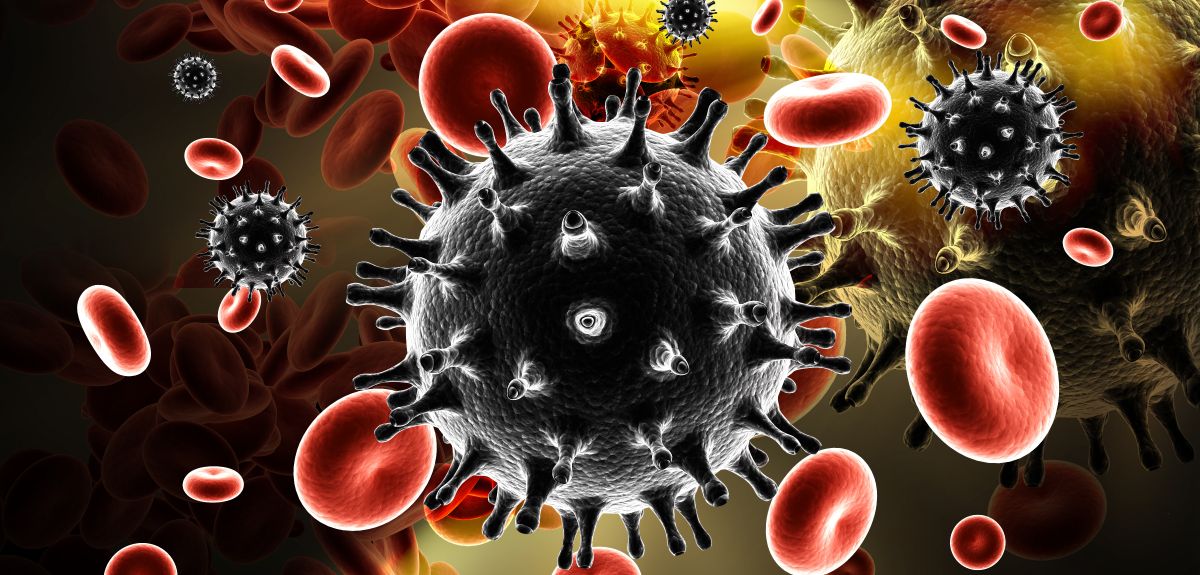
Image: Shutterstock
HIV scientists launch £17 million project to develop vaccine
A new €23 million (£17 million) initiative to accelerate the search for an effective HIV vaccine has begun.
Financed by the European Commission, the European AIDS Vaccine Initiative (EAVI2020) brings together leading HIV researchers from public organisations and biotech companies from across Europe, Australia, Canada and the USA in a focused effort to develop protective and therapeutic HIV vaccines.
According to the World Health Organisation, around 35 million people were living with HIV at the end of 2013. Over two million people are newly infected every year, and it is estimated that around $22 billion (£14.3 billion) is spent yearly on HIV treatment and care. An effective vaccine remains the best hope of ending the epidemic.
Although researchers have been working on developing a vaccine for 30 years, recent advances are helping to speed up their quest. Scientists have isolated antibodies that are able to block HIV infection in preclinical models, and there have been new developments in using synthetic biology to design better vaccines.
Oxford University professors Tomáš Hanke and Quentin Sattentau are key members of the EAVI2020 consortium, which unites scientists from 22 institutions, pooling their knowledge and expertise to develop novel candidate vaccines that can be taken through to human trials within five years. EAVI2020 is funded with as part the health program of the EU's Horizon 2020 programme for research and innovation.
T-cell vaccines would complement antibody vaccines to provide optimal prevention and provide a key tool for HIV cure.
Professor Tomáš Hanke, Nuffield Department of Medicine
Professor Robin Shattock, Coordinator of EAVI2020, from the Department of Medicine at Imperial College London, said: 'Creating an effective vaccine against HIV represents one of the greatest biological challenges of a generation. But it is impossible for one group or institution to create an HIV vaccine on its own. This new project should enable us to move much more quickly. It brings together a multidisciplinary team of molecular biologists, immunologists, virologists, biotechnologists and clinicians, providing the breadth of expertise needed to take the latest discoveries in the lab and rapidly advance them through preclinical testing and manufacture, into early human trials.'
At Oxford, researchers will be looking at raising two specific types of immunity to HIV infection – T cells and antibodies. If successful, both the T cell and antibody strategies could offer a universal HIV vaccine for use worldwide.
Professor Tomáš Hanke will lead a team to test a novel vaccine strategy focusing effector T cells, which respond to infection, on the most ‘functionally conserved’ regions of HIV proteins. These are areas of protein, which remain the same even as variants of the virus evolve around the world and are therefore likely to be critical for HIV's basic survival. He said: ‘Conserved T-cell vaccines would complement antibody vaccines to provide optimal prevention, and provide a key tool for HIV cure.’
We aim to engineer proteins that trigger the immune system to make antibodies that recognise and inactivate most or all viral species circulating in the global pandemic.
Professor Quentin Sattentau, Dunn School of Pathology
Professor Quentin Sattentau’s laboratory will be designing and testing novel types of protein vaccines based on the HIV envelope glycoprotein, the target of protective antibody responses. He said: ‘We aim to engineer proteins that trigger the immune system to make antibodies that recognise and inactivate most or all viral species circulating in the global pandemic, so that vaccinated individuals will be broadly protected from infection.’
Dr Ruxandra Draghia-Akli, Director of the Health Directorate at the Directorate General for Research and Innovation of the European Commission said: 'In its dual role of policy maker and research funder, the European Commission has played an essential part for over thirty years in supporting HIV vaccine research. Despite major global investments in the field and the promising progress, several scientific obstacles have to be overcome to develop novel promising HIV vaccine candidates. It is with this in mind that the European Commission is providing an almost 23 million Euro grant to the EAVI2020 consortium from which we have high hopes for success. This will allow European scientists to work together and in collaboration with researchers from outside Europe to successfully develop predictive tools and better vaccine candidates to be tested at an early stage of the process.'
 Expert Comment: Church-to-mosque conversions grab headlines, but is funding the real crisis?
Expert Comment: Church-to-mosque conversions grab headlines, but is funding the real crisis?
 Expert Comment: Four years of full-scale war and Ukrainian resistance continues
Expert Comment: Four years of full-scale war and Ukrainian resistance continues
 Oxford and Liverpool join forces to tackle global challenges
Oxford and Liverpool join forces to tackle global challenges